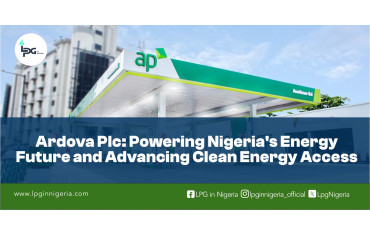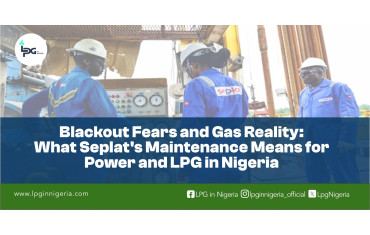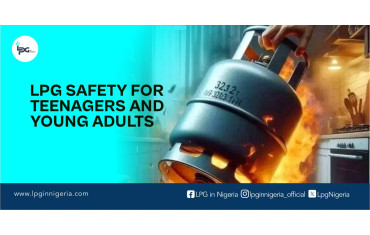- 3785
- 0
Sharing Ideas and Updates on LPG in Nigeria and related information to enable effective collaboration within the LPG Value Chain
SON Addresses Recent CNG Explosion In Benin City, Warns Against Substandard Cylinders

The Standards Organisation of Nigeria (SON) has provided critical insights into the recent explosion of a Compressed Natural Gas (CNG) vehicle at a refuelling station in Benin City, Edo State. Following a preliminary investigation, SON revealed that the cylinder used to convert the vehicle did not meet the organization's approved safety standards for CNG.
In a statement released on Saturday, SON emphasized the dangers of using substandard and uncertified CNG cylinders, urging Nigerians to ensure they only use approved equipment. The organisation extended its condolences to those affected by the incident, stating:
“Preliminary investigations revealed that the cylinder used to convert the vehicle does not comply with the CNG Standards approved by the organisation.”
Regulatory Measures in Place
To prevent further incidents, SON reassured the public that it has established strict regulatory measures to ensure that all CNG equipment and conversion kits meet approved standards before certification. SON’s conformity assessment schemes are designed to block the importation, manufacture, and use of substandard products, particularly for CNG systems.
Also, the organisation announced its collaboration with the Presidential Initiatives on CNG and other government agencies to finalize the Nigerian Gas Vehicle Monitoring System (NGVMS). This platform will provide centralized monitoring and surveillance of CNG systems, allowing only vehicles with certified conversion kits to refuel at gas stations. The NGVMS will also maintain a database of approved CNG equipment and suppliers, further safeguarding against substandard installations and mitigating risks.
“This initiative reassures the public that CNG safety is a top priority and reaffirms our commitment to ensuring the safe use of CNG in Nigeria,” SON added.
Differences Between LPG and CNG Cylinders
SON also took the opportunity to highlight the structural differences between Liquefied Petroleum Gas (LPG) and CNG cylinders, as each is designed to handle different pressure levels. LPG cylinders are built for a working pressure of 7 bar, with the ability to withstand up to 30 bar, while CNG cylinders are designed for much higher pressures, with a working pressure of up to 200 bar and the capacity to withstand test pressures of over 300 bar.
Unlike LPG cylinders, CNG cylinders are seamless and do not have welded joints, making them better suited to the high-pressure environment in CNG vehicles. SON urged CNG refuelling stations to conduct regular inspections, ensuring that vehicles are equipped with approved conversion kits and labelled conversion centres.
The Explosion and Public Concerns
The explosion, which occurred on Wednesday at the NIPCO filling station in Aduwawa, Benin, left three people seriously injured. One motorist suffered eye injuries, while two others—a woman with severe stomach injuries and another individual who had their foot amputated—are receiving treatment at the University of Benin Teaching Hospital.
Eyewitnesses reported that the cylinder responsible for the blast was fabricated by a local welder without proper approval, further raising concerns about safety. The incident has created panic among Nigerians who were considering converting their vehicles to CNG following the recent petrol price hikes.
As this tragic event highlights the risks of using uncertified equipment, SON’s ongoing efforts to regulate and monitor CNG installations aim to reassure the public of the safety measures in place and prevent future accidents.
SOURCE: Punch News
















0 Comment.